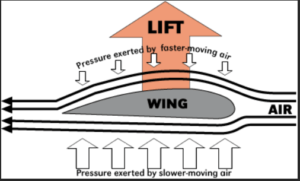Jesus said that it is necessary to have a childlike heart to enter the kingdom of God.
I tell you the truth, anyone who doesn’t receive the Kingdom of God like a child will never enter it.” Luke 18:17 (NLT)
Many of us tend to idealize childhood because of its lack of adult responsibilities or worries. Although it is not true for all, children have few shadows of sadness, disappointment, and shame. No big sins, failures, dashed hopes, or betrayals should cloud their hearts. Ideally, hopefulness, happiness, carefree innocence, contentment, and joy should be the experience of children. Does this describe your memories of childhood? I hope so.
Sadly, for many others, childhood was marred by the too soon awareness of how wicked the world is and the too early exposure to adult sins, temptations, and responsibilities. Abuse, neglect, shame, fear, loneliness, abandonment, and betrayal mark the childhood memories of some. These recollections and experiences may still echo in their minds and reverberate in our souls, resulting in a kind of PTCD – post traumatic childhood disorder. When something or someone churns up these old memories, powerful negative emotions may erupt.
Not surprisingly, the way we experience childhood can powerfully impact who we are as adults. What are we supposed to take with us from childhood into a mature and healthy adulthood? What are we supposed to leave behind? Paul clues us in on this.
Dear brothers and sisters, don’t be childish in your understanding of these things. Be innocent as babies when it comes to evil, but be mature in understanding matters of this kind. 1 Corinthians 14:20 (NLT)
God never intended for us to become familiar with evil. That was Satan’s idea, but now that the “cat is out of the bag,” our Lord does want us to develop in us a proper ability to discern between good and evil and to progress to an adult understanding of what is good.
But, what if we experienced a terrible childhood? Can the evil done to us be undone? Can we recover what was taken from us and get beyond the scars? Is their any way for us to receive what we should have received and missed out on as young children? As adults, is it possible to enjoy life as one who was properly loved and nurtured during childhood, even if we were not? Can childhood somehow be regained?
Sadly, many of us who were happy children in healthy families may have somewhere along the line lost our “childlikeness” because of sin and our responses to life’s pain and disappointments. We may have become cynical and find it difficult to fully trust God. We analyze first and believe secondly, if at all. Is there hope for us, too? I believe so.
Children and the Kingdom of God
Jesus loved little children and said something quite profound about them. Once when some parents were bringing infants and small children to him to receive his blessing, the disciples tried to push them away, apparently wishing to protect their master from this distraction and preserve his dignity as a teacher. Jesus became indignant and responded:
...“Let the children come to me. Don’t stop them! For the Kingdom of God belongs to those who are like these children. Luke 18:16 (NLT)
Rather than drive away the children because they were “not worth his time,” or “incapable of receiving what he had to offer,” Jesus opened the door wide for those little ones to come to him. What did Jesus mean when he said that the Kingdom of God belongs to those who are like children? What did he intend for us to grasp when he declared that no one will even enter God’s kingdom, unless we receive it like a child? Were these merely poetic words or an invitation?
The New Covenant and Childhood Regained
No matter how old a person may be, we are always children to God.
Jesus frequently tenderly addressed his listeners as children.
Dear children, I will be with you only a little longer... John 13:33 (NLT)
When Jesus rose from the dead, far more was affected than we now comprehend. Not only were sins forgiven, but the first raindrops of a coming flood of restoration of the entire creation was set in motion by what the Bible calls the New Covenant.
Central to what Jesus accomplished was to make us God’s own children.
Instead of leaving us as hopeless orphans, Jesus made us a part of God’s family.
For all creation is waiting eagerly for that future day when God will reveal who his children really are. 20 Against its will, all creation was subjected to God’s curse. But with eager hope, 21 the creation looks forward to the day when it will join God’s children in glorious freedom from death and decay. 22 For we know that all creation has been groaning as in the pains of childbirth right up to the present time. 23 And we believers also groan, even though we have the Holy Spirit within us as a foretaste of future glory, for we long for our bodies to be released from sin and suffering. We, too, wait with eager hope for the day when God will give us our full rights as his adopted children, including the new bodies he has promised us. Romans 8:19-23 (NLT)
If we only understand that the New Covenant produces forgiveness for sinners, we miss so much. Sins were indeed erased by the shedding of Christ’s blood on the cross, and we who believe are declared “not guilty” by our Creator through his resurrection, which is called justification. Those who put their faith and allegiance in Our Lord Jesus, the Messiah King of Israel, are set free from everything that enslaved them, even though we may not immediately experience it. This includes sin, death, disease, demons, addictions, religious legalism, and everything else that the devil uses to hold people captive. This is the meaning of redemption.
But perhaps the greatest gift of all is our reconciliation to Father God and being brought into his family through the new birth.
God forgives, justifies, sets free, and restores us to his heavenly family as fully loved and accepted blood-bought born-again children, in whom dwells God’s own Spirit, the Spirit of sonship.
We are sons (and daughters) because the Spirit of God’s Son lives inside us.
We experience Jesus’ relationship with Abba as a result.
So you have not received a spirit that makes you fearful slaves. Instead, you received God’s Spirit when he adopted you as his own children. Now we call him, “Abba, Father.” 16 For his Spirit joins with our spirit to affirm that we are God’s children. Romans 8:15-16 (NLT)
But when the right time came, God sent his Son, born of a woman, subject to the law. 5 God sent him to buy freedom for us who were slaves to the law, so that he could adopt us as his very own children. 6 And because we are his children, God has sent the Spirit of his Son into our hearts, prompting us to call out, “Abba, Father.” 7 Now you are no longer a slave but God’s own child. And since you are his child, God has made you his heir. Galatians 4:4-7 (NLT)
The passages above speak of our being given full rights as adopted children. This will be fulfilled at the resurrection of the dead when we will be glorified and will manifest completely all that Jesus died to give us. This will be an expression of something that has its origin in eternity – the relationship of the Father with the Son. We who believe and receive the gospel enter into that relationship through the new birth and the indwelling Spirit.
All praise to God, the Father of our Lord Jesus Christ, who has blessed us with every spiritual blessing in the heavenly realms because we are united with Christ. 4 Even before he made the world, God loved us and chose us in Christ to be holy and without fault in his eyes. 5 God decided in advance to adopt us into his own family by bringing us to himself through Jesus Christ. This is what he wanted to do, and it gave him great pleasure. 6 So we praise God for the glorious grace he has poured out on us who belong to his dear Son. Ephesians 1:3-6 (NLT)
Jesus and His Abba
The eternal Son, the Logos, the Second Person of the Trinity, is “eternally begotten.” (John 3:16, John 17:5) This means his relationship with the Father has always been and will always be. When he became a human being through his miraculous virgin birth, he experienced human sonship in the family of Joseph and Mary, but his primary relationship was and is with his heavenly Abba Father. We are not sure what kind of parents Joseph and Mary were, but we assume they were good ones by human standards, providing Jesus with a safe and secure loving and nurturing environment in which to grow up. However, we actually know more about his relationship with Abba.
Jesus acknowledged his devotion to his Abba when he was very young. When he remained behind at the Temple, engaged in discussion with religious leaders, and was finally located by his distraught parents, he said the following when they remonstrated him for staying behind.
“But why did you need to search?” he asked. “Didn’t you know that I must be in my Father’s house?” Luke 2:49 (NLT)
From a very early age, his primary allegiance was always to Abba, and he also understood Abba’s love and commitment to him.
I wonder how this made Joseph feel? Jesus knew he was adopted. He loved his adoptive father, Joseph, but his first allegiance was to his eternal Father. Jesus received from Joseph and Mary human love, discipline, education, and social and career skills – things every good parent supplies as best he or she can.
From his Abba Jesus received everything that he needed to be a fearlessly secure and loving human being.
The Bible privileges us to glimpse a beautiful impartation from Abba to his Son, when Jesus was gloriously transfigured on the mountain in front of three of his disciples. Abba said in front of those three who were there:
...“This is my dearly loved Son, who brings me great joy. Listen to him.” Matthew 17:5 (NLT)
What son would not want to hear his father speak these loving, affirming, and empowering words?
- “dearly loved Son” – These words firmly set Jesus’ identity as a dearly loved son. That is our core identity. If we are not rooted in this, we will struggle mightily. It is not enough to be a son. Every one of us needs to be loved. God made us to be loved, and we need to hear it spoken.
- “who brings me great joy” – This affirmed that Jesus was fully accepted and very much liked by his father. It is one thing to be loved and another to be liked. Being liked is perhaps an even greater affirmation than being loved, and being told that we bring joy to someone is the epitome of affirmation. If we are merely tolerated because we are family, it scars our souls. We long for deep unconditional acceptance, which is only found in God. Our acceptance by Abba is based on Christ’s total acceptance by his Father, which he was born into and subsequently earned. We all know that we fall far short of measuring up to God’s standards and wonder how God can accept us at all. The beauty of the gospel is that we get to “ride on the back” of Jesus’ relationship with Abba. He earned for us unconditional acceptance. Praise the Lord!
- “Listen to him” – These words empowered and commissioned Jesus with the knowledge that his Abba Father gave him an important job to do. Jesus knew that he was a person to be heeded, followed, and respected. Abba gave him significance, which is one of the deepest desires of the human soul. True significance only comes from God. If we are significant to him, that should be enough. Little children are significant to God, and he calls all of us to a very great work – to be ambassadors of reconciliation who take the glorious good news to others. (2 Corinthians 5:20)
Unfortunately, many fathers and mothers are unable or unwilling to properly love, rejoice in, and validate their children, which can leave them insecure, afraid, angry, and searching for these three things from others. Looking for love in the wrong places only leads to more heartache. Where is the best place for us to get what we may have missed out on from our earthly parents?
Jesus, the Doorway to Abba’s Heart
Jesus came to demonstrate a proper relationship with Abba. He died and rose again to restore us and introduce us to his Abba and explain or reveal him to us.
He did this by living and speaking as Abba would. Jesus revealed Abba continually though his lifestyle and words. The Bible says this about Jesus.
No one has ever seen God. The One and Only Son— the One who is at the Father’s side— He has revealed Him. John 1:18 (HCSB)
But there is a revelational aspect to this demonstration as well. Our hearts need to be enlightened by the Holy Spirit. Nothing pleases Jesus more than to introduce us to his Abba and open our hearts to understand more about him and just how much he loves us; so that we can believe, receive, and enjoy that relationship with the help of God’s Spirit.
At that time Jesus prayed this prayer: “O Father, Lord of heaven and earth, thank you for hiding these things from those who think themselves wise and clever, and for revealing them to the childlike. 26 Yes, Father, it pleased you to do it this way! 27 “My Father has entrusted everything to me. No one truly knows the Son except the Father, and no one truly knows the Father except the Son and those to whom the Son chooses to reveal him.” Matthew 11:25-27 (NLT)
If we ask Jesus to reveal more about his Abba to us, he will!
But only the childlike will be able to receive this revelation, since they are the only ones who desire to know Abba in a greater way. Only the humble can enter the kingdom.
About that time the disciples came to Jesus and asked, “Who is greatest in the Kingdom of Heaven?” 2 Jesus called a little child to him and put the child among them. 3 Then he said, “I tell you the truth, unless you turn from your sins and become like little children, you will never get into the Kingdom of Heaven. 4 So anyone who becomes as humble as this little child is the greatest in the Kingdom of Heaven. Matthew 18:1-4 (NLT)
Unless we become humble and repentant like little children, we cannot enter the kingdom and receive its blessings. How can we do this?
Steps to Regaining a Childlike Heart
Jesus is the way, the truth, and the life. (John 14:6) He is the doorway through which we enter into all of God’s blessings. He is the Wonderful Counselor and Great Shepherd of the Sheep. The only way to regain a humble childlike heart is to come humbly to Jesus and ask him to do this in us.
Then Jesus said, “Come to me, all of you who are weary and carry heavy burdens, and I will give you rest. 29 Take my yoke upon you. Let me teach you, because I am humble and gentle at heart, and you will find rest for your souls. 30 For my yoke is easy to bear, and the burden I give you is light.” Matthew 11:28-30 (NLT)
Humility will prompt us to let go of (repent from) our sins and receive healing for any wounds, those things that are robbing us of God’s blessings. (If you wish to read more about how God heals and sets us free, click here.) This is a very personal thing. The Spirit will show us whatever may have destroyed and still be destroying our childlike wonder and awe of God, our ability to receive and show tenderness, our ability to trust from the heart, our ability to freely express our emotions, our ability to be excited, to be angry as appropriate, to feel joy, to worship, to forgive… You get the idea.
Repentance needs to be rather ruthless. We cannot afford to coddle anything that hinders knowing, loving, and serving Abba better.
Only the Holy Spirit can do this for us and in us. He indwells us and is our Helper. He uses the Bible to direct our steps in this process. His goal is to fully transform us into the likeness of the only begotten Son, which means becoming humble and gentle in heart, like a child, like Jesus.
This is a lifelong process that will be suddenly and completely culminated at the Second Coming. John put it this way:
See how very much our Father loves us, for he calls us his children, and that is what we are! But the people who belong to this world don’t recognize that we are God’s children because they don’t know him. 2 Dear friends, we are already God’s children, but he has not yet shown us what we will be like when Christ appears. But we do know that we will be like him, for we will see him as he really is. 1 John 3:1-2 (NLT)
Since those of us who have declared faith and allegiance to Christ are already children of God, we have the privilege of boldly drawing near to our Abba through the wide open door that Jesus provided for us. The Holy Spirit accompanies us right into God’s throne room.
We, like Jesus, can confidently approach our Abba, knowing that he loves us beyond comprehension, that he is joyfully pleased with us, and that he has commissioned us with the infinitely important work of representing him to a world of spiritual orphans.
We should ask Abba to love on us and heal our wounded hearts. Let us come to him as little children, humbly and expectantly. Let us ask Jesus to reveal Abba’s love to us in an ever greater way. We will not regret it. God’s love is the most powerfully transforming force that exists.
Prayer
Jesus, thank you for opening the door into Abba’s loving heart. I ask you to open my understanding to comprehend his love in a greater way. Restore to me childlike humility and faith. Holy Spirit, I trust you to carry out this transformation and restoration. Show me where I need to repent and help me to ruthlessly turn away from sinful thinking and actions that are based on rebellion, hurts, and lies. I want to start thinking and behaving more like who I really am, Abba’s child. Amen.
Click here to read more of the articles in this series.


 grand kids, church kids, and neighborhood children. The way a swing works is simple. The rope is attached to a stable base that serves as a fulcrum. The swing (tire) oscillates back and forth. It’s range is limited by the length of the rope. On our swing, we can push the kids back and forth or in a circular motion. We can give them a gentle ride or push really hard to get a wider and higher oscillation. We can learn a lot about walking in the Spirit from this.
grand kids, church kids, and neighborhood children. The way a swing works is simple. The rope is attached to a stable base that serves as a fulcrum. The swing (tire) oscillates back and forth. It’s range is limited by the length of the rope. On our swing, we can push the kids back and forth or in a circular motion. We can give them a gentle ride or push really hard to get a wider and higher oscillation. We can learn a lot about walking in the Spirit from this. The Seat: The Soul
The Seat: The Soul